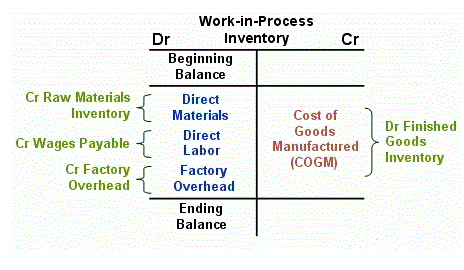Content

A single accountant can help you file tax returns for multiple businesses. Their accounting can help you choose the right tax forms for each business type and find the appropriate deductions. Effective tax planning can lead to significant tax savings, allowing you to allocate more funds towards your financial goals. Moreover, understanding your financial position enables you to make informed decisions about investments, expenses, and savings.
A personal accountant with appropriate expertise will assist you in determining your specific financial requirements. A personal accountant possesses the necessary knowledge and skills to keep reliable financial records for an individual or company. Many individuals consider hiring a personal accountant to help them handle their taxes and investments. Although this is an ideal choice for some, recruiting an accountant does have certain drawbacks. An accountant will put your company’s financial records in order and produce statements of accounts that you can show to prospective buyers. Using high quality accounting software they can create useful charts and tables to show your company in a good light.
Reasons You Need a Business Plan
If you hired a seasoned veteran with experience in your particular industry, your onboarding will likely consist of little more than teaching them about your company. Hiring an accountant is an in-depth process that requires several steps. But before you start your search, it’s essential to understand what an accountant does, and whether your business truly needs one. As long as you feel good about working with the accountant you’ve chosen, you’re pretty much done at this point. From here, it’s just a matter of formalizing your arrangement and letting your accountant get to work. Talking to someone who has already worked with the accountant you’re considering can help alleviate concerns.
Tax examiner
Tax examiners typically work with the simplest tax returns, such as those submitted by small corporations and individual taxpayers who claim few deductions. When reviewing applications, pay close attention to candidates’ educational backgrounds, certifications and relevant work experience. Additionally, look for things such as attention to detail, analytical thinking and strong communication skills.
You’re starting a new business
They can help with various tasks, such as conducting due diligence, negotiating the purchase price, assisting with the transfer of assets, and advising on tax implications. An accountant can be a valuable resource when buying or selling a business, helping ensure the transaction is smooth and successful. Accountants also provide financial advice to their clients and help them make informed decisions about their financial matters.
Who is the ideal candidate for accountant?
Attention to Detail: An ideal candidate pays meticulous attention to detail, ensuring accuracy in financial statements, reports, and compliance with regulations. They should possess a keen eye for spotting errors, reconciling discrepancies, and maintaining precise records.
Objective feedback from someone familiar with your spending preferences is invaluable. They will help you increase your finances or scale your company by assisting you in making sound decisions. An accountant’s goal is to ensure that they assist clients with making financial arrangements that positively impact their lives. They can help determine if your proportion of loan balances to loan amounts is too high and help you make corrections.
What does a business accountant do?
Failure to record all transaction details daily will throw the record-keeping processes into disarray when doing your accounting. Even if you believe you have the time and skills necessary to do bookkeeping independently, you would always need a bookkeeper to provide the groundwork for your accounting scheme. If you don’t find a tax preparer or C.P.A. near you whom you feel comfortable https://www.bookstime.com/ working with, consider looking outside of your geographic location. Though many people prefer face-to-face meetings, you aren’t limited to C.P.A.s and tax advisors in your town. Look at your potential C.P.A. or tax preparer’s website and social media accounts to see what sorts of things they post online. Read online reviews on Yelp, Google, Angie’s List, Thervo, and Facebook.

This may include advice on financial strategies to support the growth of the business, such as identifying cost-saving opportunities or new funding sources. They may be responsible for preparing financial statements and other documents that are reviewed during the audit personal accountant or work with the auditors to provide information and assistance. They can help with various tasks, including choosing the proper business structure, setting up financial systems, advising on tax obligations, developing a budget, and providing financial guidance.
Why hire an accountant?
For example, they can check whether the company’s assets (like equipment) are fully owned or leased or part-paid for, and whether the company has any outstanding debt. Only you can decide whether you then want to take on the franchise or not. But armed with detailed knowledge of the finances, you can make that decision with greater confidence.
- Keeping track of deadlines for tax returns, among other things, can become a daunting challenge that interferes with your everyday pleasure.
- For those who have been operating with an outsourced accountant, the time to upgrade to a full-service, in-office accountant typically comes when the business reaches the 30+ employee mark.
- However, recruiting a personal accountant will guarantee that you follow all of the tax authorities’ specifications.
- While it can be simple to use tax preparation software to prepare your own taxes, about 21% of paper tax returns have errors according to the IRS.
- If you want a single accounting professional for your business, a firm may not be the best route.
- If your job description is unclear or incomplete, you could get responses from unqualified candidates or fail to attract the best-fit applicants for your company.
Forensic accountant
In forensic accounting, the finances of a person or company are examined using accounting, auditing, and investigation techniques. Forensic accountants are certified public accountants (CPAs) that search for evidence of crimes and frequently work for insurance firms, financial institutions, and law enforcement organizations. On top of preparing tax returns, accountants provide financial analysis and planning, prepare financial statements, maintain general ledgers and conduct financial audits. Individuals are not required by law to keep financial books and records (businesses are), but not doing this can be a costly mistake from a financial and tax perspective. Your bank account and credit card statements may be wrong and you may not discover this until it’s too late to make corrections.
Year-round services track your finances and will be more effective at tax time while maintaining accurate financial reporting and supporting quality decision-making. Although hiring an accountant is optional, they can be an enormous help with reviewing financial records and filing taxes. An experienced business accountant’s advice might be the difference between success and failure and their expertise can help guide your decisions as your business grows. For the tasks described at the beginning, a personal bookkeeper is what you’ll need. Most people do not use an accountant (only wealthy individuals can justify the cost of these tax pros).
